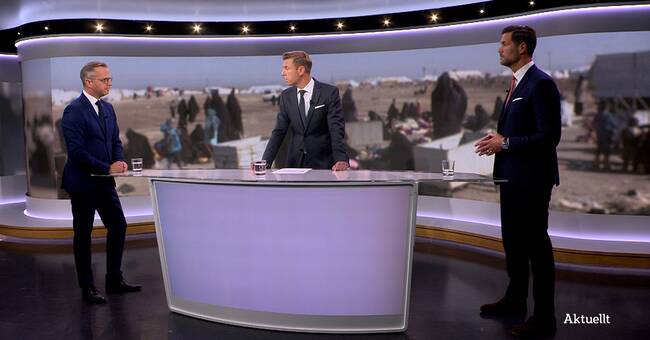Minister of the Interior Mikael Damberg (S) and the Moderates' legal policy spokesperson Johan Forssell met on Monday evening in SVT Aktuellt regarding the three Swedish IS women who were deported to Sweden during the day.
The moderates have been critical of the government's handling of the issue and question the support the government has shown the women in connection with the return.
- There is a difference between receiving and actively assisting terrorists to get to Sweden.
It has been difficult to bring home the interpreters in Afghanistan who have served in the armed forces.
In this case, a welcome committee is sent with Foreign Ministry officials, doctors, security personnel and more, says Johan Forssell.
Damberg: An obligation
Mikael Damberg denies that this was a welcome committee without it being a matter of routines for the expulsion to take place in a safe manner.
- Expelled persons, we have an obligation to receive and then it also includes children.
There is an obligation for us to do so safely.
Both from a safety perspective but also for the children's best, says Mikael Damberg.
- The women themselves have had to pay for their flight tickets back to Sweden, but since there are no regular flights from the regional self-government, they have chosen to help with the planning of the trip.
Security risks for Sweden
Johan Forssell says that the government, through its handling of the case, contributes to creating more security risks for Sweden.
- If you actually care about Sweden's security, you do not make sure to actively assist people who are security risks to get to Sweden.
If they come to Sweden's border, you must try to prosecute them.
For example, we had put forward a proposal to revoke citizenship if we had chosen to join a terrorist sect, the government did not want to do that.
Swedish citizenship is not something you should just get lightly, says Johan Forssell.

